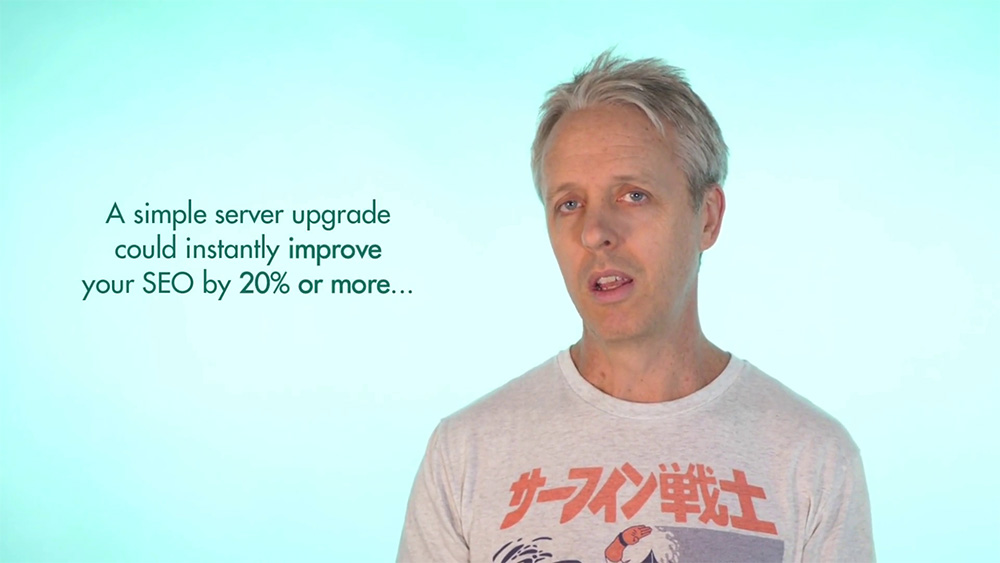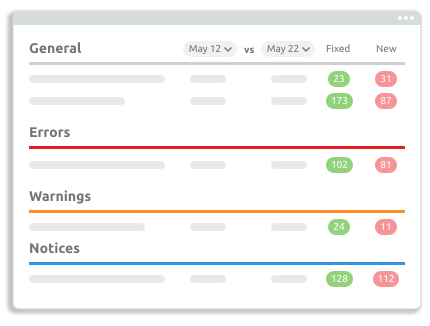
Welcome to our video series on useful SEO tips that any small business can implement.
To receive these small business SEO tips in your inbox every two weeks, subscribe below.
 Welcome to our video series on useful SEO tips that any small business can implement.
Welcome to our video series on useful SEO tips that any small business can implement.
To receive these small business SEO tips in your inbox every two weeks, subscribe below.
Video Transcript
Let’s face it, web hosting is pretty unsexy. Most business owners regard it – if they think about it at all – as just another business cost.
But what if I told you that a simple server upgrade could instantly improve your SEO by 20% or more?
I’m Ben Carew, the host of ‘SEO Hacks for SME’s’. In this video I’ll reveal why ‘page speed’ is crucial for good SEO, and how it can help you get some massive jumps in your site rank.
No one knows for sure, but over 200 different signals are speculated to be in the Google algorithm. One signal that’s not in doubt is ‘page speed’.
What is that, exactly?
You might know it as “page load time”. Page speed is how fast it takes for the web browser to fully display the content of a specific page.
And why is this important?
Well the longer a page takes to load, the more visitors are likely to ‘bounce off’. That’s a bad user experience, which Google effectively penalises by sending the site less future traffic.
Conversely, studies have shown the faster your page speed the better your SEO.
In a minute I’m going to share 3 quick tips for how you can improve page speed. But first I want to clarify what constitutes a ‘slow’ page load.
Google says 2 seconds is the threshold for eCommerce acceptability, but that under 0.5 seconds is preferred.
That’s pretty quick. How bad is your page speed?
You’d be surprised. At Webbuzz it’s not uncommon for new SEO clients to come to us with 5 or even 10 second page loads. Needless to say it’s the first thing we fix.
You can test your page speed with Google’s PageSpeed Insights. Or try our preferred app at tools.pingdom.com
Now if your page speed is a problem, here are 3 fixes that might help:
Upgrade your server or change web hosts.
Here at webbuzz we thought our server was fast. But we recently upgraded to a different host with more modern web servers. The result? Website speed increased substantially and we’ve seen our own visibility on Google for target keywords lift an astonishing 15-20% in just a few weeks.
Minify or compress your page code.
All web pages are made of code which, with large images or lots of javascript can weigh the page down. Compression tools and minification can lighten the code and speed up page load times.
Use a content delivery network, or ‘CDN’.
A CDN is essentially a network of servers scattered across different physical locations. A CDN can radically increase the page speed experience of your website by serving up versions of your pages much closer to the web users’ actual location.
Remember, Google’s core objective is to serve up results that best answer the user’s search query.
So if your page takes ages to load, it isn’t doing a very good job answering the query or servicing the user. We think this is the basis for speed as a ranking factor and it’s in this context that slow pages can lose rank in favour of faster pages that do the job just as well.
So there you have it: faster page speed = better SEO.
Let us know your thoughts and leave a comment below.
Links & tools mentioned:
- Pingdom: the most accurate speed measurement tool for Australia
- Google PageSpeed Insights









Any Website Speed is very important ranking factor for Google SEO, THIS is not direct effect Any website. This always effect indirect from users. When a user visit your website and your website take 20 second time to load. The user experience will be very very bad. Even if you have very good content. None like to wait 20 second for your website. So That user will be back immediately.. This is called bounce back when it’s go over 20 percent Google will begin be decreased your ranking. Website Speed always effect indirect your SEO. So try to always improve your website Speed. Average welcome load time is 5.0 second. Fast Website Speed is before 3.0 second. So try to improve your website to load before 3.0 seconds for fast Website Speed.